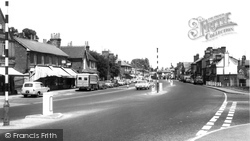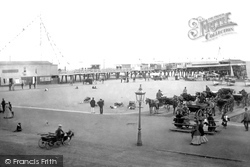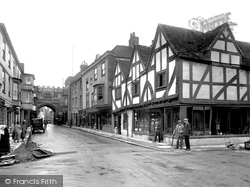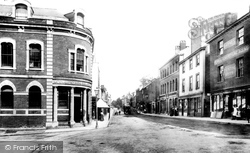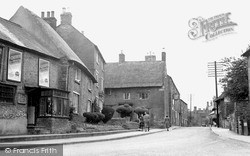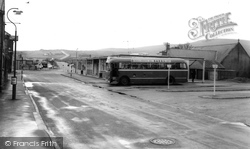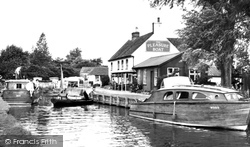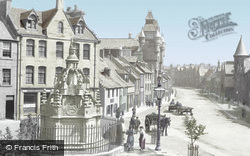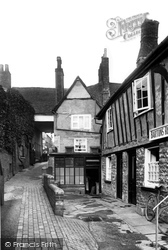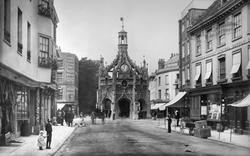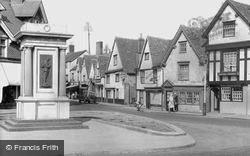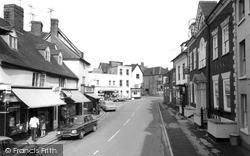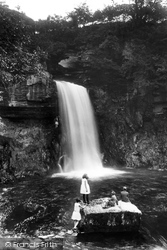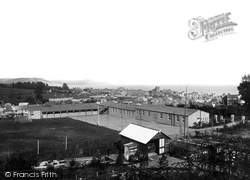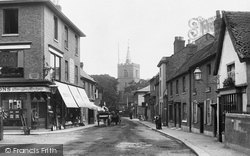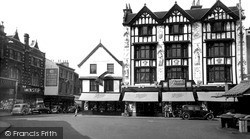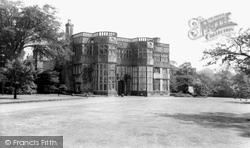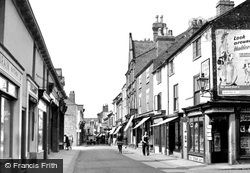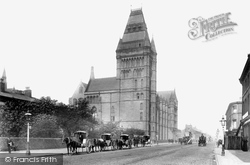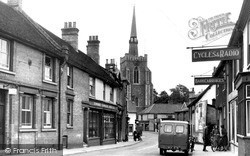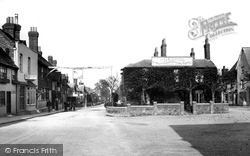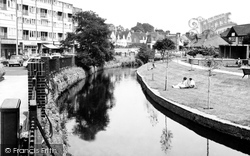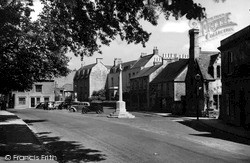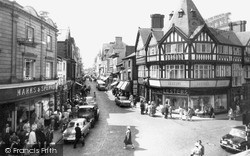Places
26 places found.
Those places high-lighted have photos. All locations may have maps, books and memories.
- Town End, Derbyshire
- Town End, Buckinghamshire
- Town's End, Somerset
- Towns End, Dorset
- Town End, Merseyside
- Town End, Cambridgeshire
- Town's End, Buckinghamshire
- West End Town, Northumberland
- Bolton Town End, Lancashire
- Kearby Town End, Yorkshire
- Town End, Cumbria (near Grange-Over-Sands)
- Town End, Cumbria (near Bowness-On-Windermere)
- Town End, Yorkshire (near Huddersfield)
- Town End, Yorkshire (near Wilberfoss)
- Town End, Cumbria (near Appleby-in-Westmorland)
- Town's End, Dorset (near Melbury Osmond)
- Town's End, Dorset (near Swanage)
- Town End, Cumbria (near Ambleside)
- Town End, Cumbria (near Lakeside)
- Town End, Cumbria (near Kirkby Lonsdale)
- Town End, Cumbria (near Ambleside)
- Town's End, Dorset (near Bere Regis)
- West-end Town, South Glamorgan
- Townend, Derbyshire
- Townend, Strathclyde (near Dumbarton)
- Townend, Staffordshire (near Stone)
Photos
26 photos found. Showing results 3,401 to 26.
Maps
195 maps found.
Books
160 books found. Showing results 4,081 to 4,104.
Memories
3,719 memories found. Showing results 1,701 to 1,710.
Netherthong Cooperative Society Part 2
In March 1893, plans were approved to alter and enlarge the shop premises. The manager applied for a reduction in the working hours of the employees and this was granted. The store will be closed at 7pm ...Read more
A memory of Netherthong by
Gowing Up In Huttons Ambo
I grew up in Huttons Ambo and my mum still lives there today. What a wonderful carefree childhood. We lived in Low Hutton for a few years, my mum (Eileen Routledge, brother Simon and sister Sarah), and then moved to ...Read more
A memory of Huttons Ambo in 1963 by
Portaferry
I was born in Portaferry in 1943 but moved to England, aged just 5 years, when my mother remarried. My mother's family were Mcbrides and were well known in the town, my mother was one of 13 children although some of them did not reach ...Read more
A memory of Portaferry by
The Best Times Ever
I have so many amazing memories of Dunning Glen as a child. We used to go there every time we got a bit of nice weather, build fires, cook wee willie winkies, jump in and of the water, catch minnows and play in our dinghy. We ...Read more
A memory of Dunning Glen in 1988
Fullers Garden Centre
Every Sunday the car park of Fullers and all the way down Bell Lane would be overflowing with cars parked where ever they could. My mum would give us enough money to buy a block of vanilla icecream and if she could stretch ...Read more
A memory of Barton Mills in 1968 by
Colerne From 1916
My grandparents lived in Colerne, my mother Minnie Louise Rowe was born there around the 1880s and my father William Simpkins lived in Colerne with the Aust family from when he was a baby. I was born in Bath in Kingsmead Road in a ...Read more
A memory of Colerne in 1920 by
Pitlake Bridge
Maybe a bit later but I remember a shop on Pitlake Bridge that sold unusual foreign plastic kits and Toys - There was another in Southbridge Road as well, or maybe the same one moved there.. I also recall going into a sort of ...Read more
A memory of Croydon in 1959 by
My Fathers Connection As A Photographer In Margate
I came down to Margate to live in Westbrook with my family when I was about 18 months old, probably around mid 1943. My dad was a local photographer then. He had a photographic studio in New Street ...Read more
A memory of Margate in 1940 by
I Hate Basildon
Having moved at the horrid age of 13 years to Basildon from Hornchurch in the early 1960, I found the surrounding countryside a wee bit scary. Now I love the countryside and could never live in a town again and with that moved to the ...Read more
A memory of Basildon by
Mr Alcock
I'm searching web for information about George Alcock MBE who was my teacher in Fletton Primary and mixed School on the High Street bridge. Unfortunately both Mr Alcock and the school have long gone, but my memories of that great man ...Read more
A memory of Old Fletton in 1955 by
Captions
5,111 captions found. Showing results 4,081 to 4,104.
It retains a distinctly rural character, yet also has the attributes of a small town with shops on either sideof the road.
The town rose swiftly to the challenge of the new tourism in the Victorian era. Piers were constructed and seaside attractions of all kinds soon sprang up.
The largest of the waterways was known as Town Ditch and was filled in 1875. At the time of this photograph, the traffic is still horse- drawn and trees still grow in the street.
Like nearby Tiverton, Crediton did well out of the cloth trade, but when that declined the town stagnated.
Moulton is only a stone's throw from the centre of Northampton; when the town thrived on shoe manufacture, many men and women walked from this village to work in the shoe factories.
Brynmawr was once the largest town in the rural county of Breconshire, but in 1974 it became part of industrial Gwent. The Red and White bus is probably a Bristol make.
At Hickling, where the Broadland waters fan into expansive shallows, there is a pleasing jumble of red tiled and thatched buildings clustering around the old Pleasure Boat Inn.
All is peace and quiet in this scene, but things were livelier on 23 January 1570. Lord James Stewart, Earl of Moray and Regent, was shot by James Hamilton as he rode through the town.
This passageway, which now runs from St Mary's Street down into the car park beside the meadows, formed one of a tight network of passages and closes which provided cramped tenement accommodation in this
With a plan based on its Roman predecessor, Noviomagus, this fine walled city is divided into quarters by North, South, East and West Streets, which all meet at the splendid Market Cross in the centre
The war memorial with its bronze relief panels by Griffin was formally dedicated in September 1921 and unveiled by the Earl of Abingdon.
With such an assortment of architectural styles in the town centre, there is always a building or detail to please the eye. This photograph looks towards Church Street.
The village nestles at the foot of Ingleborough, one of the famous Three Peaks, but it was the waterfalls walk that brought town dwellers to the area.
Its cabins were in keeping with the basic military hut- like look of so many institutions built during the First World War and afterwards.
Although Church Street has had much rebuilding in recent years it still retains its character and is one of the best streets in the old town.
The three-storey building of Boots the Chemist at Nos 15 and 16 Market Place is not as old as it seems.
The hall, parts of which date from 1550, has been re-built and added to over the years.
The characteristics of a real country market town were being established. A handsome stone church was built, originally dedicated to St Peter and St Paul but later to All Saints.
Here we see the front face of Owen's College on Oxford Road, and you can see similarities to the Assize Court, and even the Town Hall, all of which were designed by Alfred Waterhouse.
We are looking west towards Station Road and the church - the delicate spire was added to the tower in 1712. The Stowmarket Co-op on the left has been rebuilt.
The medieval settlement of Crawley, situated half way along the London to Brighton Road, was ideally located to become an 18th-century coaching town.
The town was a regular target for bombing raids during the Second World War because of its close proximity to the Woolwich Arsenal.
A Benedictine abbey stood just off the town square, a vast church that dated from Saxon days.
Marks & Spencer's (left) has been a constant presence in Wrexham at a time when town centres generally have been under perpetual threat of change.
Places (26)
Photos (26)
Memories (3719)
Books (160)
Maps (195)




